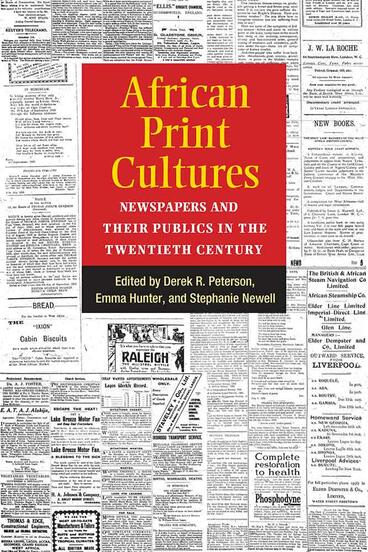African Print Cultures
Newspapers and Their Publics in the Twentieth Century
Broad-ranging essays on the social, political, and cultural significance of more than a century’s worth of newspaper publishing practices across the African continent
Description
The essays collected in African Print Cultures claim African newspapers as subjects of historical and literary study. Newspapers were not only vehicles for anticolonial nationalism. They were also incubators of literary experimentation and networks by which new solidarities came into being. By focusing on the creative work that African editors and contributors did, this volume brings an infrastructure of African public culture into view.
The first of four thematic sections, “African Newspaper Networks,” considers the work that newspaper editors did to relate events within their locality to happenings in far-off places. This work of correlation and juxtaposition made it possible for distant people to see themselves as fellow travellers. “Experiments with Genre” explores how newspapers nurtured the development of new literary genres, such as poetry, realist fiction, photoplays, and travel writing in African languages and in English. “Newspapers and Their Publics” looks at the ways in which African newspapers fostered the creation of new kinds of communities and served as networks for public interaction, political and otherwise. The final section, “Afterlives, ” is about the longue durée of history that newspapers helped to structure, and how, throughout the twentieth century, print allowed contributors to view their writing as material meant for posterity.
Derek R. Peterson is Professor of History and African Studies at the University of Michigan.
Emma Hunter is Lecturer in African History at the University of Edinburgh.
Stephanie Newell is Professor of English and Senior Research Fellow in International and Area Studies at Yale University.
Reviews
"This beautiful collective book, beyond the pleasure it provides via the discovery of fifteen meticulously documented case studies and covering a very wide period (from the end of the 19th century to the beginning of the 21st century), represents a welcome epistemological and methodological advance in view of the existing work on the media in Africa.
- Florence Brisset-Foucault
-Cahiers d'Études africaines

